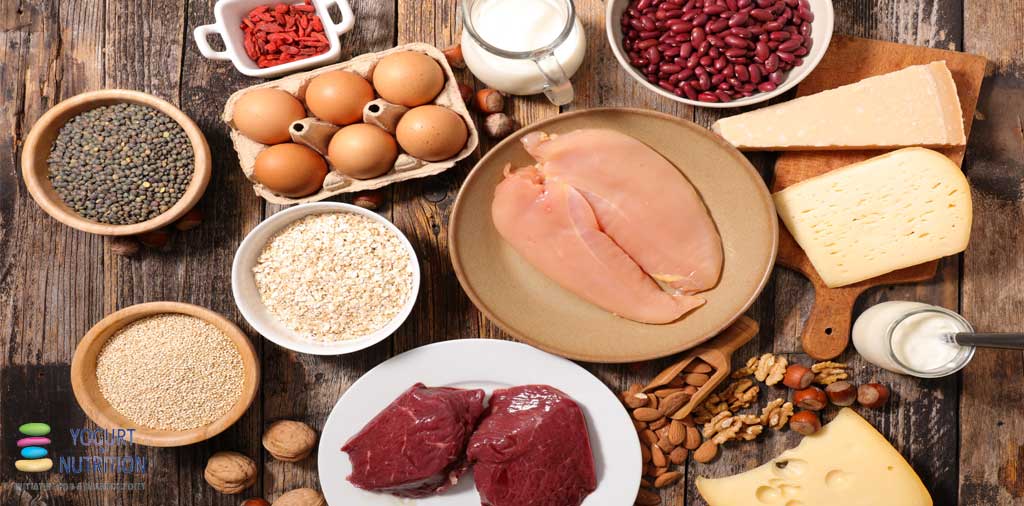It has been scientifically proven that too much carbohydrate and fat in our diet can increase the risk of developing type 2 diabetes, but did you know that some protein-rich foods may increase the risk too? In this review of the literature, the authors report that eating less red meat and processed meat and eating more dairy products may help to prevent type 2 diabetes.
Protein is an important building block of our organs and tissues and is needed to make enzymes, hormones and other chemicals in the body. Some types of protein-rich foods are better for us than others, and choosing the right source of proteins may be important in preventing diseases, including type 2 diabetes.
What do we know about dietary risk factors for type 2 diabetes?
Most studies of dietary risk factors have focused on carbohydrate and fat. Recently, studies have started to examine the relationship between dietary protein intakes and the risk of developing type 2 diabetes but, so far, the results have been variable and it has been difficult to draw conclusions.
In this systematic review and meta-analysis, the authors of this article identified 11 cohort studies (483,174 participants) that looked at the relationship between the type of dietary protein (animal protein or plant protein) and/or its specific food source, and type 2 diabetes. They analysed the combined data to help people make informed choices about which high-protein foods to eat.
Animal protein is associated with increased risk of developing type 2 diabetes
People eating the most total protein (animal and plant proteins), had a 12% higher risk of developing type 2 diabetes compared with those eating the least. A similar analysis of high versus low intake of animal protein (meat, fish, eggs and dairy) showed a 14% increase in risk.
In terms of plant protein, eating high levels of soy reduced the risk of developing type 2 diabetes in women, but the risk in men was unaffected.
Red meat and processed meat are risk factors for type 2 diabetes
The results suggested that red meat and processed meat products appear to be risk factors for type 2 diabetes. The increased risk of developing type 2 diabetes was 22% for red meat and 39% for processed meat when high consumers were compared with low consumers. These foods are also linked with weight gain, stroke, heart disease and early death.
The authors suggest that the increased risk of type 2 diabetes associated with red meat and processed meat may be due to their high levels of iron, nitrites and advanced glycation end-products – proteins or lipids linked to sugars resulting from processing and cooking.
However, dairy products may protect against type 2 diabetes
In contrast, protein intakes from dairy products, particularly yogurt, was linked to a reduced risk of type 2 diabetes. Risk reduction was 11% for total dairy, 13% for whole milk and 17% for yogurt when high consumers were compared with low consumers. Milk proteins increase satiety, and this together with the high calcium and vitamin D levels in diary may contribute to these beneficial effects, say the authors.
Results for eggs and fish showed no apparent effect on the risk of type 2 diabetes.
Find out more: read the original article.
Source: Tian S, Xu Q, Jiang R et al. Dietary protein consumption and the risk of type 2 diabetes: a systematic review and meta-analysis of cohort studies. Nutrients. 2017;9:982.



